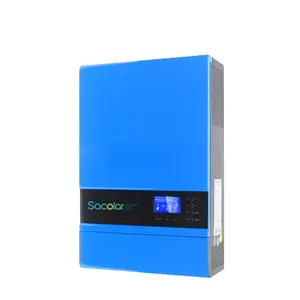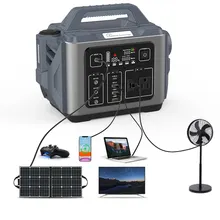Dry Battery Inverter: An Overview
In the realm of power conversion, the dry battery inverter stands as a pivotal category, offering a bridge between stored electrical energy and functional power for various applications. Unlike its wet-cell counterparts, a dry battery inverter utilizes batteries that are sealed, requiring minimal maintenance and boasting a longer shelf life. This type of inverter is particularly suited for environments where liquid leaks could pose a risk or where maintenance opportunities are scarce.
Types and Applications
The versatility of dry cell battery for inverter systems is evident in their range of types, including pure sine wave, three-phase, and single-phase inverters. These are not only integral for solar energy systems but also for home energy storage solutions. The adaptability of these inverters allows them to be employed in various settings, from residential solar systems to essential home appliances, ensuring a consistent power supply.
Features and Materials
A dry battery for home inverter is designed with reliability in mind, constructed from durable materials that withstand frequent cycling and varying loads. The dry cell technology within these inverters signifies a leap in efficiency and safety, with materials that are less prone to corrosion and degradation over time. This ensures a stable performance across the battery's lifespan, which is particularly important for applications such as home energy systems and solar power storage.
Advantages of Dry Battery Inverters
The advantages of using a dry battery inverter are manifold. These inverters are known for their ease of installation and low maintenance, thanks to the absence of liquid electrolytes. They are also typically more compact and lighter than their wet-cell counterparts, making them an ideal choice for space-constrained installations. Furthermore, the safety aspect cannot be overstated; with no risk of spills or leaks, they are safer for both residential and commercial environments.
Capacity and Longevity
For those requiring substantial backup power, options such as the dry battery for inverter 200ah provide ample capacity for more demanding energy needs. On the other hand, a 150ah dry battery offers a balance between size and power, suitable for average home energy systems. The longevity of these batteries is a key consideration, with products like the dry tubular battery known for their extended lifespan and consistent performance over numerous charging cycles.
Choosing the Right Dry Battery Inverter
Selecting the appropriate inverter with dry battery hinges on understanding the specific energy requirements of the application. Factors such as capacity, measured in ampere-hours (Ah), like the dry cell battery 150ah, and the type of inverter technology are crucial in determining the right fit for a user's needs. While Alibaba.com does not endorse any particular brand, the platform facilitates a vast selection of suppliers offering a wide range of dry battery inverters to meet diverse requirements.



































 浙公网安备 33010002000092号
浙公网安备 33010002000092号 浙B2-20120091-4
浙B2-20120091-4